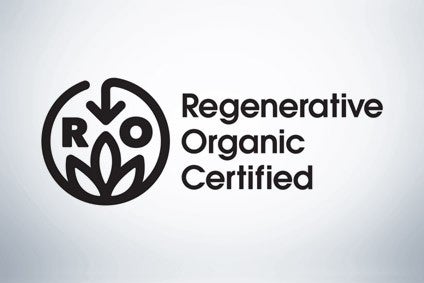
A new organic certification programme has been launched in the US, aimed at improving fairness for farmers and workers, as well as addressing animal welfare and ecological land management.
Launched at last week’s Natural Products Expo West show in California by the Regenerative Organic Alliance, the Regenerative Organic Certified (ROC) is a holistic agriculture certification encompassing “robust, high-bar standards”.

Discover B2B Marketing That Performs
Combine business intelligence and editorial excellence to reach engaged professionals across 36 leading media platforms.
The Regenerative Organic Alliance is led by Rodale Institute, a US non-profit that supports research into organic farming.
In 2014, research by Rodale Institute estimated that if current crop acreage and pastureland shifted to regenerative organic practices, 100% of annual global CO2 emissions could be sequestered in the soil.
Founding members of the certification include Compassion in World Farming, Grain Place Foods, Maple Hill Creamery and White Oak Pastures.
The US Department of Agriculture (USDA) organic standard is the bedrock of the new certification: only products certified under the USDA programme are eligible to meet the Regenerative Organic Certified criteria. With the requirement farms achieve organic certification as a baseline, the ROC standard addresses next-level soil health and also adds in requirements for animal welfare and farm labour.

US Tariffs are shifting - will you react or anticipate?
Don’t let policy changes catch you off guard. Stay proactive with real-time data and expert analysis.
By GlobalData“Regenerative Organic Certification does not aim to supplant current organic standards. Instead, this certification aims to support these standards while at the same time facilitate widespread adoption of holistic, regenerative practices throughout agriculture,” Rodale Institute said. “It builds upon the standards set forth by USDA Organic and similar programs internationally, particularly in the areas of animal welfare and farmer and worker fairness.
With ROC, the aim is consumers will know they are buying a product that addresses the environmental impacts of agriculture, animal treatment and fair and safe working conditions for farmers and farm workers. Also, since regenerative farming practices will enhance carbon sequestration, they will also be supporting the fight to mitigate climate change.
The certification was created with the intent for the standard to become adopted by companies and producers on a broad scale. The Alliance says there is enthusiastic interest from brands in the food, fibre, and natural products industry to join the effort.
It is open to anyone in any industry to adopt including brands, farmers, ranchers and certain manufacturing facilities. Pilot audits are expected to launch in the coming months with a small group of certifiers and producers to understand how the ROC standards can be implemented at the farm and ranch level, with the goal of having Regenerative Organic Certified products appearing on shelves within the next two years.
The Regenerative Organic Alliance is made up of experts in farming, ranching, soil health, animal welfare, and farmer and worker fairness, and will regularly re-evaluate certification guidelines and update the certification, as necessary.
just-food deep dive from July 2017: How the food industry can help reverse climate change





